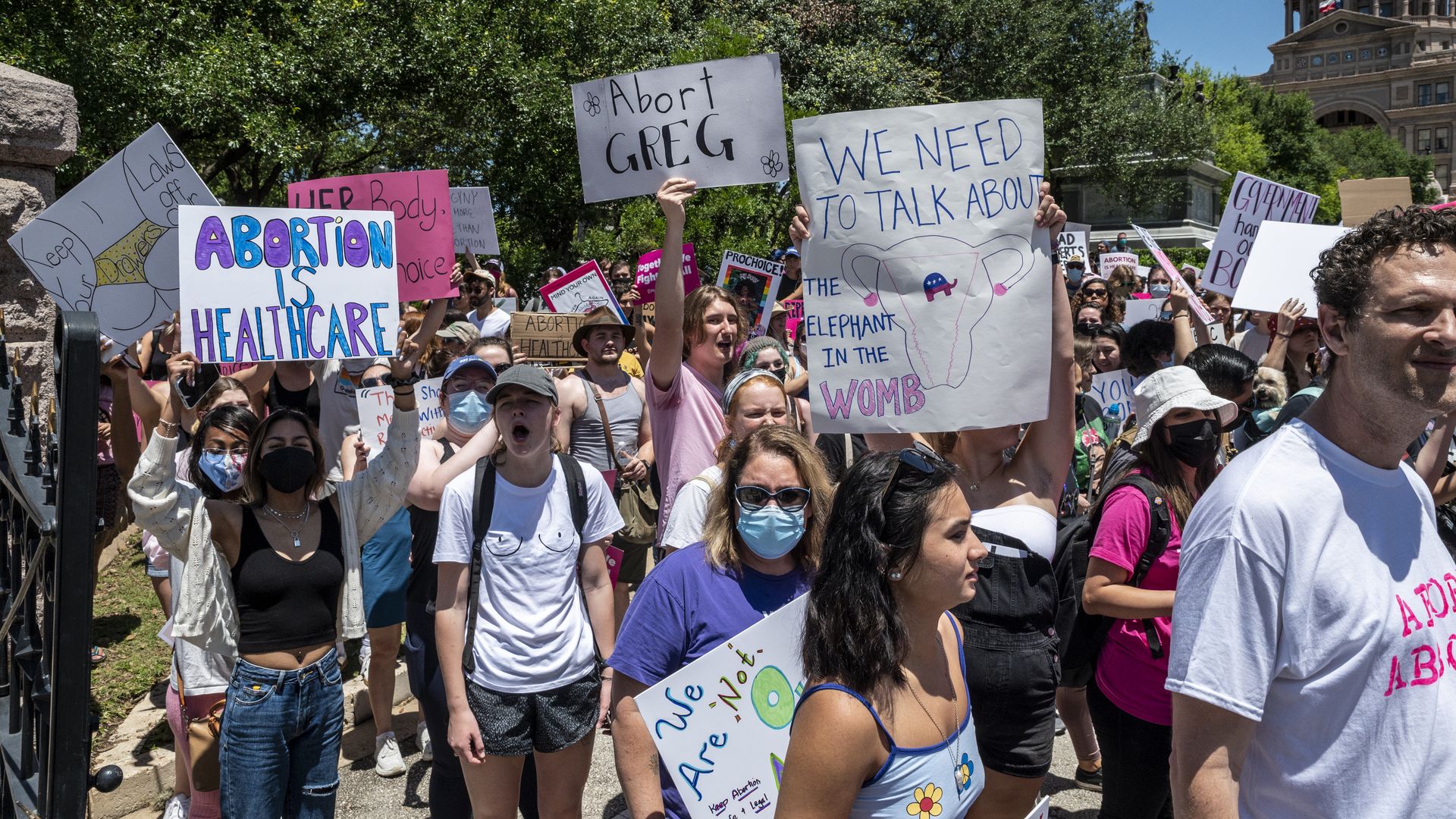Aug 30, 2021 - Health
Reproductive rights groups ask Supreme Court to block Texas abortion ban
Add Axios as your preferred source to
see more of our stories on Google.

Thousands of demonstrators take part in a march outside the Texas State Capitol in May after Gov. Greg Abbott signed a restrictive abortion law. Photo: Sergio Flores via Getty Images
